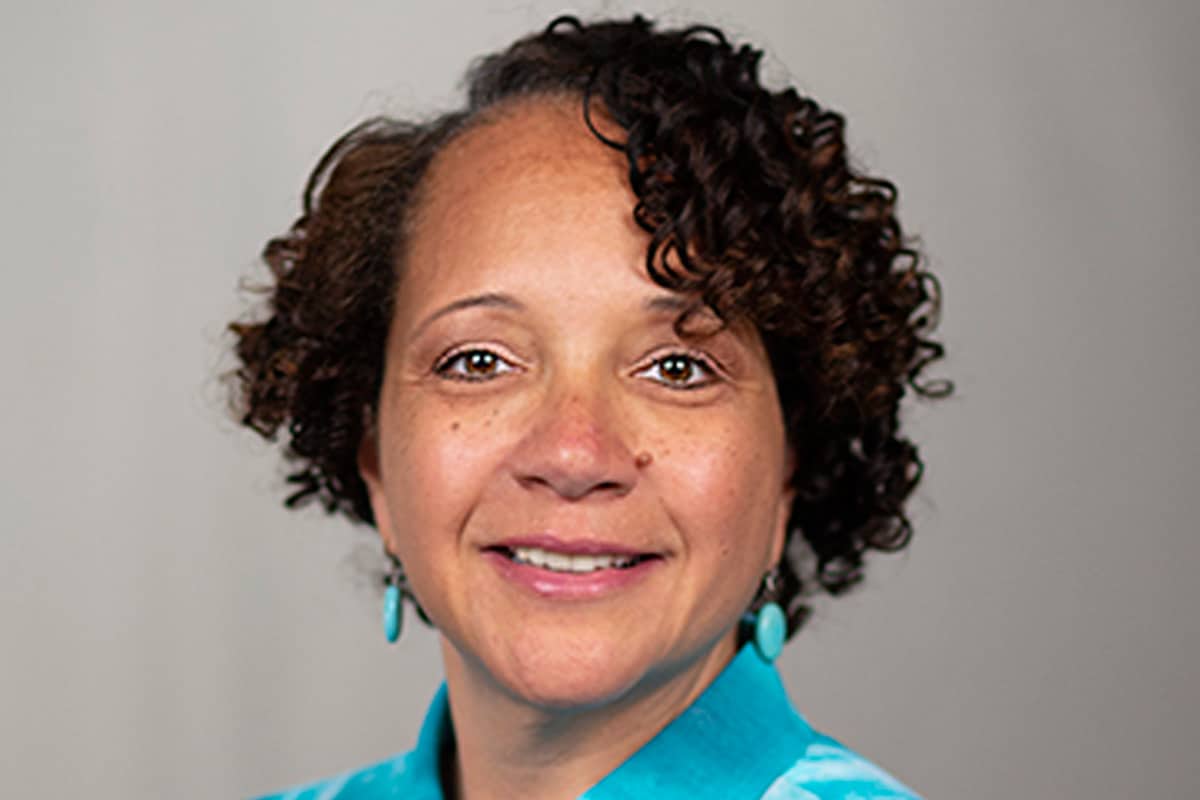“I can’t say I actually planned this path - this path was planned for me.”
Before she dove headfirst into the field of social work, Tyra Robinson-Walker had very different goals in mind.
“This is going to be kind of ironic, and you may laugh…” she warned. “I actually have an undergraduate degree in mass communications, so I was the weather girl for our campus TV station. And I had an Illinois broadcasting scholarship, which led me to a news radio station in Princeton, Illinois.”
While broadcast was her passion at the time, every related avenue Walker pursued post-undergrad led to part-time jobs with low salaries. As a supplement, she took a part-time job working as a detention officer in Lake County Detention Center. A chord was struck; from there, Walker followed the many open doors that guided her to a new and passionate calling.
Flash forward to today. Walker, MSW, LCSW and BSW Field Coordinator and instructor at Indiana University Northwest, is a licensed social worker with 20 years of experience with diverse populations in community mental health, behavioral medicine, educational, and correctional settings. With a special focus on forensic social work, Walker spends much of her time navigating the pitfalls of the legal justice system. Rooted in Michigan City, Walker takes her role in the community seriously and finds a sense of purpose in aspects others might find challenging.
“I know that most people are probably going to look at this with a different perspective, but I like working on behavior med cases. I like working with the population that is diagnosed as schizophrenic, watching how they stabilize and are able to grow and manage different interventions to cope with their symptoms,” she explained. “You can see that progress once you start to build that rapport with that population. It’s just interesting to see how the brain works, how the brain adapts to various chemistries to stabilize itself.”
For Walker, the real challenge comes from surrounding circumstances that affect the population she works so closely with. Namely, the funding (or lack thereof) for resources.
“We have so many mentally ill people incarcerated that are not getting the treatment or services they need in a timely fashion. And due to the fact that there are no resources at a federal or state level to speed that process along, there’s a big delay in getting them to the place they need to get,” Walker said.
A solution?
“I think it would be more effective in our community—not only in regard to our taxpayers’ dollars but insofar as our community being a lot healthier and safer—if we look at mental health courts just like we look at drug courts and veteran treatment courts,” Walker said.
“Those courts are very effective in reference to recidivism,” she continued. “For too many years, we have not looked at more effective avenues to get this population stable and transitioned back into our community.”
Walker is happy to be fulfilling her goal of educating and influencing future social workers at IUN.
“[Teaching has] been a longtime goal. I feel like the more we can give back to the social work division, the better,” Walker said. “Then we can pass the torch on to more quality social workers, ready to get out there and move things forward!”
Married and with three sons, Walker has lived in Michigan City for 19 years now. As a working parent, she cherishes time with her family and makes a point of being as involved in her children’s lives as much as possible.
“I’m often told that I like to clean and organize and manage everybody’s time, but I think that’s just part of living an efficient life!” she joked.
Even outside of work, Walker finds ways to further impact her community.
“Even though people say it’s more work, I enjoy being on committees that support the things I’m passionate about,” she said.
Walker has been a commissioner for the Michigan City Human Rights Department for 12 years, and she’s also stood on Veterans Treatment Court for La Porte County, supporting another population that is growing within the community and the correctional field.
“It’s an excellent opportunity for us to continue to advocate for those who don’t have a voice, and those who continue to be oppressed,” Walker said of her role in the Human Rights Department, summarizing the heart of all her work. “They need our support.”

